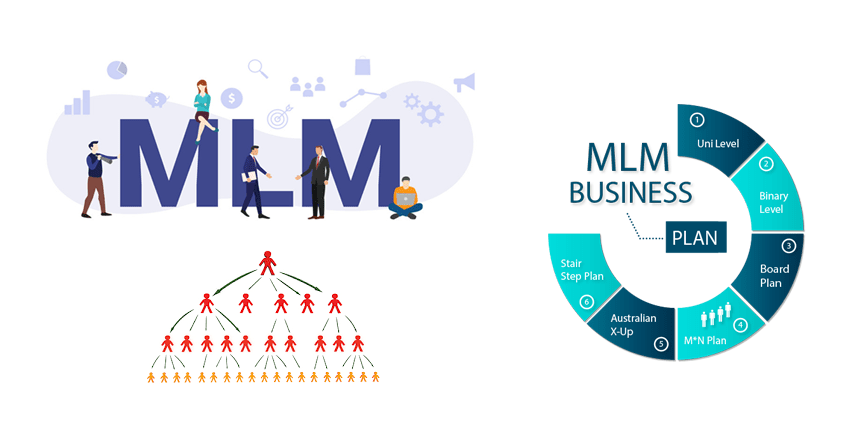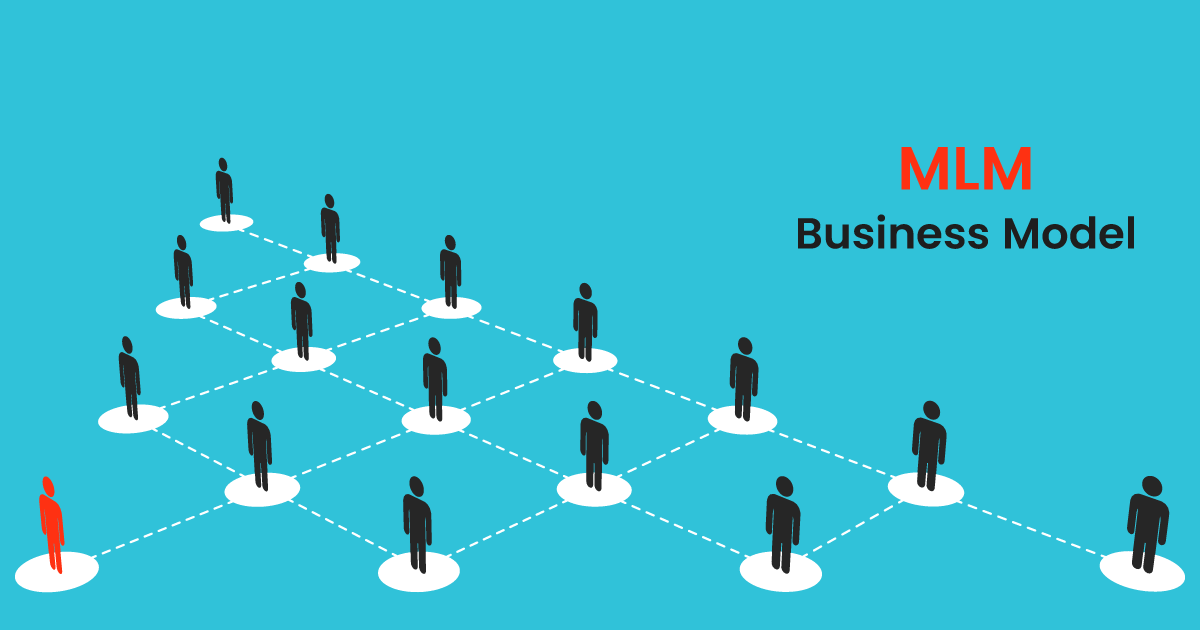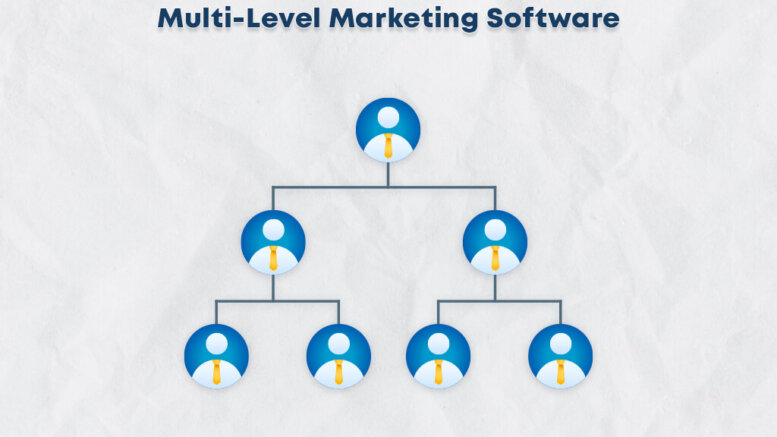MLM is a strategy of business that has existed for many decades. This is a form of direct selling where companies use a network to distribute their products and services. MLM can also be referred to as network and referral marketing, as it involves creating a network of individuals who sell and promote products.
MLM’s basic concept is that distributors are paid a commission on their sales and those of people they recruit. The pyramid structure is created, where the distributors on top earn more than the ones at the bottom. MLM companies tout the possibility for distributors to earn significant Income. However, critics claim that the majority of distributors lose money. MLM remains a popular model of business for many businesses despite the controversy.
What is MLM, and how does it operate? This article will examine the history and structure of MLM, its potential benefits and downsides, and MLM Tools. If you want to join an MLM business or are just curious, keep reading to learn more.
Understanding MLM

Multilevel Marketing (MLM), or network marketing or referral marketing, is a strategy companies use to market their products and services. MLM can also be referred to as network marketing or referral marketing. The process involves creating a network of independent distributors that sell products for the company and recruit others to do the same thing.
Distributors in MLM companies earn money by selling directly to their customers and earning a commission from the sales of those they recruit. In an MLM, the commission structure is usually a pyramidal commission system. Distributors make a percentage from the distributors’ sales that they drafted and then the distributors who recruited them.
MLM allows businesses to quickly and efficiently reach a large number of customers. MLM companies can get a more significant number of customers by building a network of independent distributors.
MLM, however, is a controversial business strategy. There are also some criticisms about the model. MLM distributors can have a difficult time earning a substantial income. Most distributors of an MLM company earn little money, while only a few top earners earn a lot.
MLM can also be criticized for making recruiting new distributors difficult for the company’s distributors. MLM companies require distributors to pay a fee or purchase a starter package to join, making it difficult for some recruits. Some people may also be skeptical about MLM companies and may not want to buy products or join them.
MLM can be an excellent way to reach a broad customer base and sell products. It is vital that potential distributors thoroughly research any MLM business before joining to make sure it is a reputable, ethical company.
Multilevel Marketing Structure

Multilevel Marketing is a business that uses a workforce without a salary to sell products and services to consumers. The hierarchy of the crew is intended to promote sales and recruitment. The MLM structure is based upon two concepts: Upline and Downline.
Upline and Downline
The person or group that recruited and trained a salesperson is called the upline. The upline is responsible for motivating, training, and supporting the salesperson. The upline receives a percentage from the sales of the person they recruited.
The salesperson’s downline is the group recruited by them. The salesperson has the responsibility of training and supporting his or her downline. Salespersons earn a percentage of sales made by the downline.
Hierarchy of Levels
MLM companies have multiple levels. Each level represents a distinct rank or status in the company—the more money a salesperson earns, the higher their grade.
Salespersons are the first level. Salespeople are responsible for selling products and services and recruiting new salespeople.
Second level: The salesperson’s subordinates are responsible for selling the product or service and recruiting new salespeople.
The downline of the downline is the third level. The hierarchy continues at this level, with each responsible for recruiting and selling products or services.
MLM is an organization that has a hierarchical business structure. The salesperson’s upline is responsible for providing support and training, and the downline is accountable for supporting and training their team. The company is divided into several levels of hierarchy. Each group represents a different status or rank within the company.
How MLM Work

Multilevel Marketing is a business that relies on independent distributors to sell products and services to consumers. MLM companies have a compensation plan based on commissions that reward distributors for sales and recruitment. This section will examine MLM’s three major components: recruitment, sales, and commissions.
Recruitment
MLM companies heavily rely on recruitment to grow their network of distributors. Existing members can recruit new members who will be added to their downline. New members are placed in a hierarchy under their recruiter, creating a pyramidal organization. The larger a distributor’s downline is, the more commissions he can earn.
Sales
MLM’s core is the sale of products or services to customers. MLM companies offer a variety of products and services, such as beauty products, health supplements, and home goods. Distributors sell these products directly to the consumer, usually through online marketing or in-person demonstrations. MLM companies can also provide training and support for their distributors to improve their sales skills.
Commissions
MLM distributors are paid commissions by a compensation plan complex that rewards sales and recruitment. Distributors usually earn a portion of their sales and their downline sales. The higher the commissions a distributor can make, the more people they recruit and the more product they sell. MLM companies can also give bonuses and incentives to distributors who perform well.
MLM is a business that relies on independent distributors who sell products and services to consumers. Distributors are paid through a compensation plan based on commissions that reward sales and recruitment. MLM is an excellent opportunity for many, but it’s essential to evaluate the MLM opportunity carefully before investing your time and money.
The Pros and Cons Of MLM

Advantages
Multilevel marketing can be a lucrative business model for those willing to invest the time and effort. Here are some MLM advantages:
- Low start-up costs: Most MLM businesses have low starting costs. This makes it easier for people to launch their own business.
- Flexible schedule MLM allows you to work at your own pace and set your schedule.
- Passive Income Once an individual builds a network of distributors, they can earn Income passively from their team members’ sales.
- Support and training MLM companies provide their distributors with support and training to help them be successful in their businesses.
Disadvantages
MLM is a great business opportunity, but it also has some drawbacks.
- High Failure Rate MLM businesses are prone to failure, as many distributors fail to make a profit.
- Recruitment pressure MLM distributors often feel pressured to recruit new team members, which may lead them to focus more on recruiting than sales.
- Negative Reputation MLM companies have a bad reputation because of the actions of unethical distributors.
- Limited Market MLM products can have a minimal market. Some products are overpriced and of questionable quality.
MLM is a good business for those willing to invest the time and effort, but you should carefully weigh the pros and cons before you get involved.
Conclusion
Multilevel marketing can be a very effective strategy for businesses to sell their products and services. MLM companies depend heavily on sales for revenue generation and use a commission structure in the shape of a pyramid to motivate their sales force.
MLM is not for everyone. It can be lucrative, but it also has its downsides. MLM critics claim it is an exploitative business model, as the profits are concentrated mainly at the top of the pyramid. Some MLM companies are also accused of deceptive marketing and exaggerating claims about their product.
Before making a final decision, it is vital that individuals who are considering MLM opportunities thoroughly research their company and products. The financial risks should be carefully considered, such as the cost of buying products and the possibility of little or no return on the investment.
MLM is a good business opportunity if you have a solid sales background and are willing to invest the time and energy required to be successful. Evaluating MLM opportunities carefully and cautiously before making a final decision is essential.












